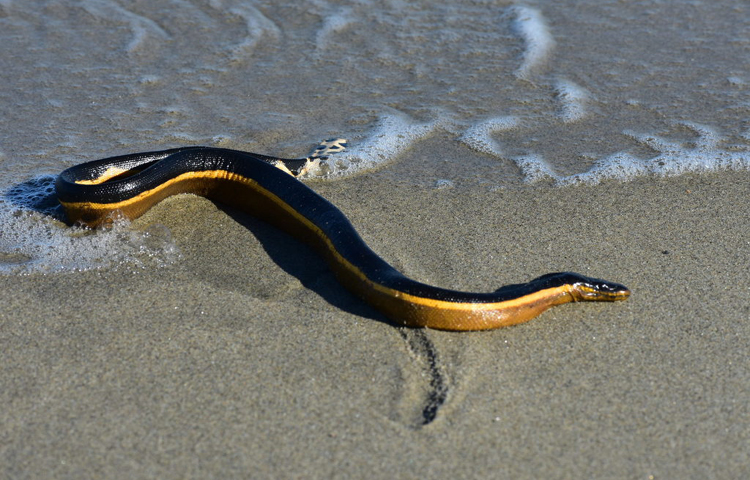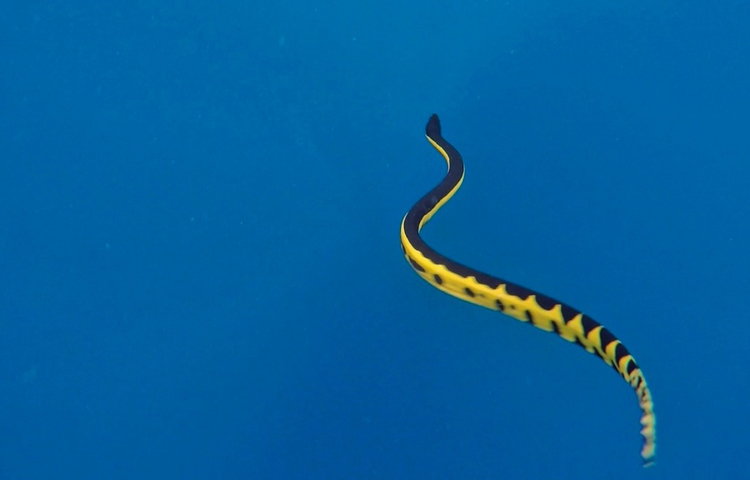Your guide to a pet-friendly backyard
Create a pet-friendly backyard with our guide for keeping your furry friends safe.
Read more15 May 2025
Heading to the beach with your dog is one of life’s simple pleasures. Lately, there’s an increasing and serious risk to be aware of: venomous sea snakes. And the danger isn’t just from live ones in the water, even a dead sea snake washed up on the sand can harm your dog.
Here’s what you need to know before your next seaside adventure.
New Zealand has always been famous for being relatively snake-free. But in recent years, we’re seeing more yellow-bellied sea snakes (Hydrophis platurus) drifting onto our shores, especially after storms and rough seas. These highly venomous snakes normally live in tropical waters, but strong currents and changing ocean conditions are bringing them closer to home.
In fact, there have already been reports of sea snakes spotted on popular beaches like Ōmaha, where a dog attacked one before authorities could respond.
It might seem safe if a sea snake looks lifeless, but don’t be fooled. Even after death, a sea snake’s venom can stay potent for hours. If your dog picks up a dead snake in their mouth or tries to chew it, they could still get a dangerous dose of venom.
Worse, if the snake’s tiny fangs puncture the inside of your dog’s mouth while they’re chewing or carrying it, the venom can go straight into their system, resulting in a real emergency.
Even a simple touch, if the snake’s fangs scratch the skin or broken skin comes into contact with venom, could be dangerous. Some bites can be fatal if not treated quickly.
Sea snakes are a protected species under New Zealand’s Wildlife Act 1953, which means it’s illegal to handle, harm, or interfere with them alive or dead. Most people avoid touching them out of respect for the law and the environment, but even more importantly, they should avoid them for their own safety.

Sea snake bites can be hard to spot. The fang marks are tiny, and symptoms can kick in before you even realise anything happened.
Watch for signs like:
Symptoms can appear quickly, sometimes within just 30 minutes. If you notice anything unusual, head to the vet immediately.

Sea snake antivenom is available in some areas, but early treatment gives your dog the best chance.
Beaches are still one of the best places to enjoy with your dog, but a little extra caution can go a long way. By staying aware, keeping dogs close, and respecting New Zealand’s unique wildlife, you’ll help keep everyone safe and help protect these fascinating (but dangerous) visitors to our shores.
Get peace of mind with dog insurance